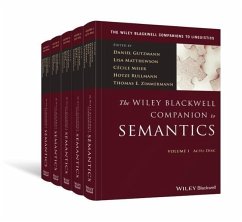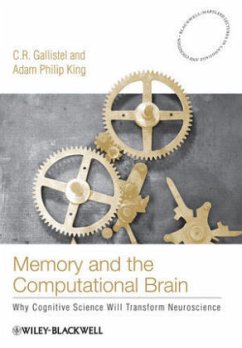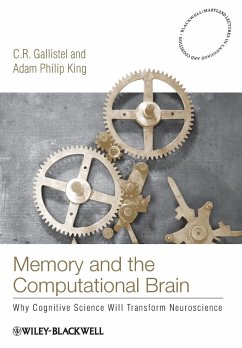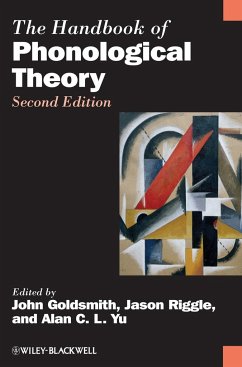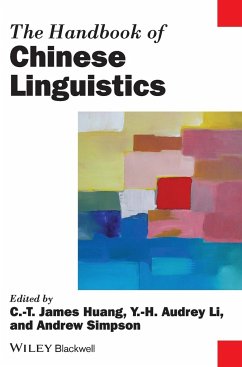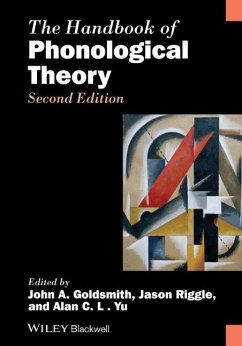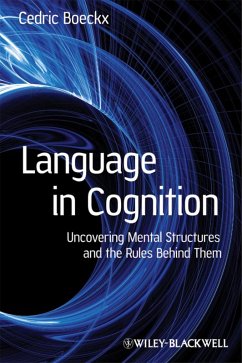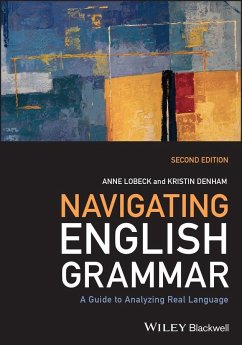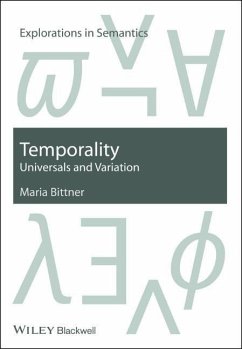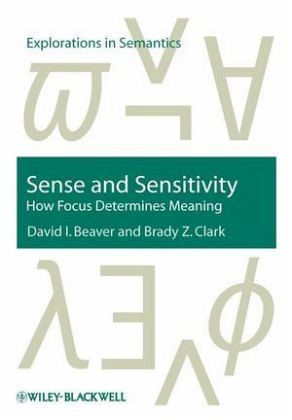
Sense and Sensitivity
How Focus Determines Meaning
Versandkostenfrei!
Versandfertig in über 4 Wochen
111,99 €
inkl. MwSt.

PAYBACK Punkte
56 °P sammeln!
Sense and Sensitivity explores the semantic and pragmatic effects of focus in natural language discourse. The book concentrates on focus sensitivity, the remarkable dependency some words have on the effects of focus. An example is "only": compare "She only LIKES me" (i.e. nothing deeper) to "She only likes ME" (i.e. nobody else).
Sense and Sensitivity advances a novel research proposal in the nascent field of formal pragmatics, exploring in detail the semantics and pragmatics of focus in natural language discourse. The authors develop a new account of focus sensitivity, and show that what has hitherto been regarded as a uniform phenomenon in fact results from three different mechanisms. The book
Makes a major contribution to ongoing research in the area of focus sensitivity - a field exploring interactions between sound and meaning, specifically the dependency some words have on the effects of focus, such as "she only LIKES me" (i.e. nothing deeper) compared to "she only likes ME" (i.e. nobody else)
Discusses the features of the QFC theory (Quasi association, Free association, and Conventional association), a new account of focus implying a tripartite typology of focus-sensitive expressions
Presents novel cross-linguistic data on focus and focus sensitivity that will be relevant across a range of linguistic sub-fields: semantics and pragmatics, syntax, and intonational phonology
Concludes with a case study of exclusives (like "only"), arguing that the entire existing literature has missed crucial generalizations, and for the first time explaining the focus sensitivity of these expressions in terms of their meaning and discourse function
Makes a major contribution to ongoing research in the area of focus sensitivity - a field exploring interactions between sound and meaning, specifically the dependency some words have on the effects of focus, such as "she only LIKES me" (i.e. nothing deeper) compared to "she only likes ME" (i.e. nobody else)
Discusses the features of the QFC theory (Quasi association, Free association, and Conventional association), a new account of focus implying a tripartite typology of focus-sensitive expressions
Presents novel cross-linguistic data on focus and focus sensitivity that will be relevant across a range of linguistic sub-fields: semantics and pragmatics, syntax, and intonational phonology
Concludes with a case study of exclusives (like "only"), arguing that the entire existing literature has missed crucial generalizations, and for the first time explaining the focus sensitivity of these expressions in terms of their meaning and discourse function



